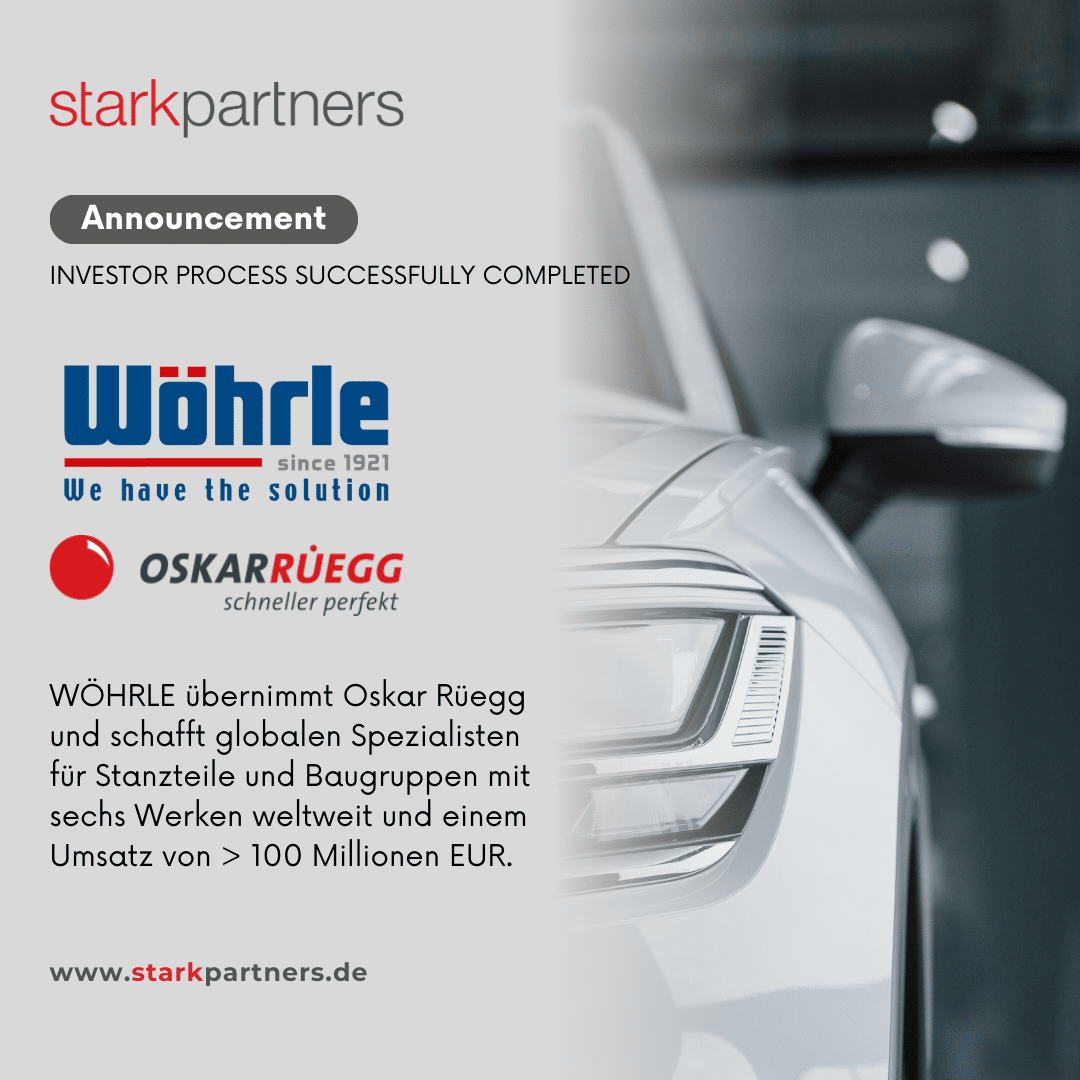The armaments industry between geopolitical impetus and industrial reality. M is becoming a strategic tool for transformation, growth and succession.
Within a few years, the security and defense industry has transformed from a politically controlled niche market to a growth area promoted by industrial policy. The Russian war of aggression against Ukraine, the increasing pressure on NATO partners to meet the 2% target and the European debate on strategic autonomy have fundamentally changed the framework conditions for armaments companies.
At the same time, many challenges remain structural: long development cycles, complex approval procedures, heavily regulated export markets, limited economies of scale and dependencies on public procurement processes. Medium-sized suppliers and system partners are increasingly coming into focus - they deliver precision, flexibility and technological know-how, often as hidden champions in the background. Anyone who bears responsibility today faces the question: consolidate, grow, diversify - or hand over?
starkpartners has been supporting companies from the defense technology industry for years - discreetly, with integrity and with a high level of responsibility. Whether suppliers of complex machined parts, system assemblies, sensor technology, optics, electronics or special software for military applications: We know the special requirements that are placed on companies in this industry - technically, regulatorily and ethically.
We know how much trust it takes to be able to exist permanently in sensitive supply chains. We understand how closely operational excellence, certifications such as AQAP or DIN 2303, and strategic partnerships with OEMs such as Rheinmetall, Hensoldt, KMW or Airbus Defence are interlinked. And we also know that owners of these companies rarely act out of short-term calculation - but in the awareness of their responsibility towards employees, customers and the nation.
The M market for companies in the security and armaments industry is in motion - but selectively. On the one hand, there are state-sponsored demand impulses, a massive need for investment and strong consolidation pressure. On the other hand, export rules, international approval procedures and political sensitivity act as natural market entry barriers.
Above all, medium-sized suppliers are increasingly being targeted by strategic buyers who want to broaden their portfolio or vertically integrate the supply chain. At the same time, investors - especially those with an industrial background or an ESG-conscious orientation - are specifically looking for companies with a security-relevant technology focus and a secure order situation. Important: Access to this market requires trust, care and discreet management. This is exactly what distinguishes our work.
Discuss perspectives for your life's work - confidentially
Typical target companies in the Defence M context
Attractive target companies are usually highly specialized, technologically focused and strategically indispensable within the defense-related supply chain. Whether precision turned parts for combat modules, special cables for communication technology, embedded software for sensor platforms or metalworking components with protective effect – the decisive factor is the ability to deliver reliably under military standards on a permanent basis.
Many medium-sized companies have been established in their niche for decades, have long-term framework agreements with the Bundeswehr, NATO or EU agencies, and meet complex certifications such as AQAP 2110, ISO 9001 for defense technology or ITAR-compliant processes for US-related applications. Added value factors such as own development shares, test laboratories, small series competence or digital interfaces for end customer integration are often found. Especially in security-critical areas, personnel stability and depth of know-how are an essential asset.
Valuation dynamics market logic: Trust, approval, depth
Valuations in the armaments sector do not follow a classic industry system. Not sales or EBITDA alone determine the value – but the durability of customer relationships, access to critical programs, technology-related barriers to entry and the extent of regulatory hurdles.
A supplier that has project-related delivery histories for armored vehicles, communication systems or air defense components, for example, achieves significantly more stable valuation bases than a classic industrial manufacturer without a defense technology track record. The ability to map complex manufacturing depths in-house – including surface finishing, testing and documentation – also influences investor perception. Trustworthiness, discretion and compliance fitness are considered silent but decisive value drivers.
What is your company worth?
Receive an initial indicative valuation – simple, confidential and specially tailored to medium-sized companies.





